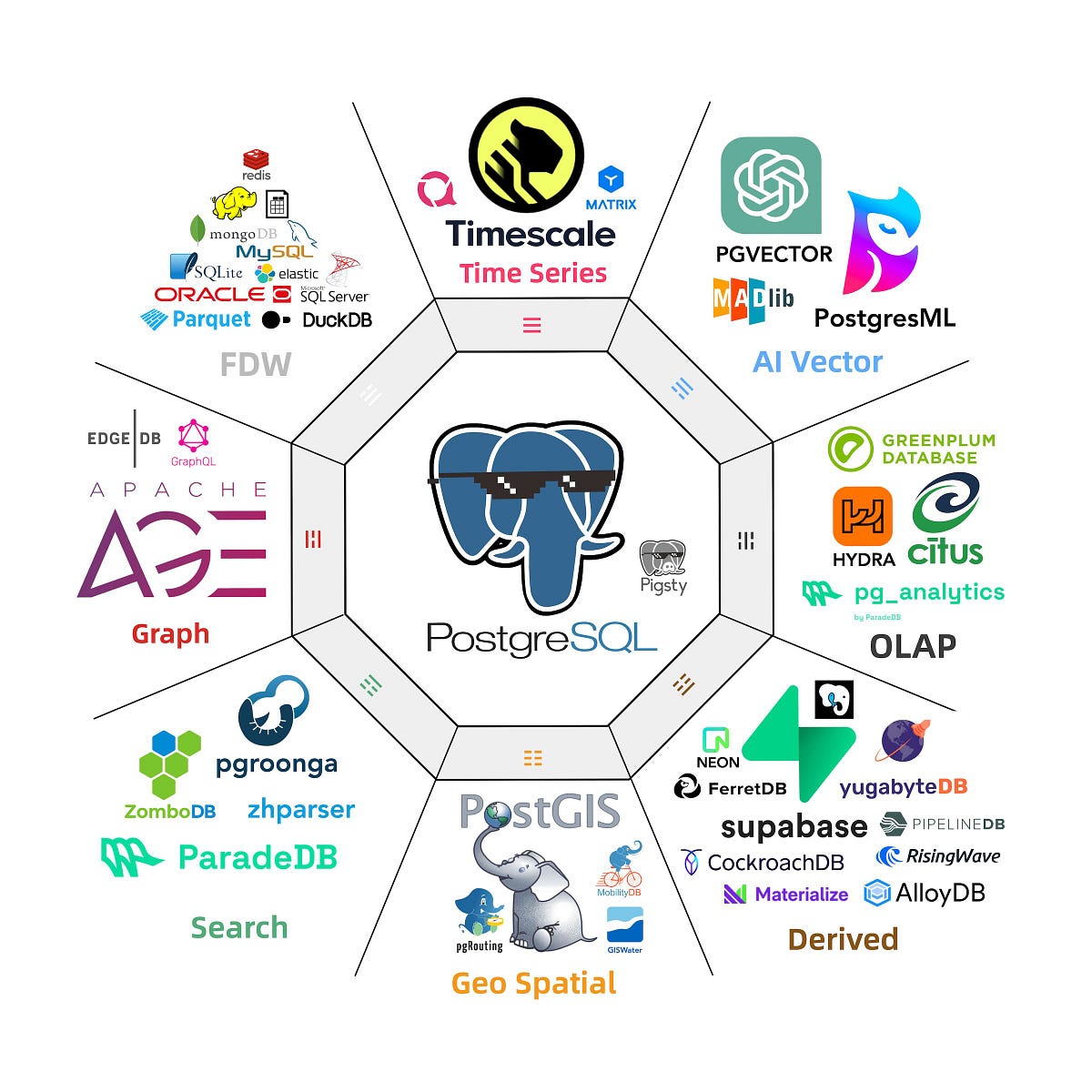Postgres Analyzed: OLAP's New Challengers ParadeDB and DuckDB
Główne pojęcia
Enhanced columnar storage engines like ParadeDB and DuckDB propel PostgreSQL to top-tier OLAP performance.
Streszczenie
In a 2016 database meetup, the lack of a robust columnar storage engine for OLAP workloads in the PostgreSQL ecosystem was highlighted. While PostgreSQL offers analysis features, its performance in full-scale analysis on large datasets falls short compared to dedicated real-time data warehouses. ClickBench, an analytics benchmark, showcases PostgreSQL's performance improvements with optimization and related extensions like Hydra, TimescaleDB, and Citus. Despite not matching first-tier OLAP components like Umbra or ClickHouse, ParadeDB's pg_analytics extension and DuckDB significantly enhance PostgreSQL's analysis capabilities.
Postgres is eating the database world
Statystyki
Untuned PostgreSQL performs poorly (x1050), optimized can reach (x47).
Extensions like Hydra (x42), TimescaleDB (x103), and Citus (x262) improve performance.
MySQL and MariaDB lag behind PostgreSQL in performance by factors of x3065 and x19700 respectively.
ParadeDB achieves second-tier performance (x10) with its native PG extension pg_analytics.
DuckDB excels in pure OLAP with extreme analysis performance boost (x3.2).
Cytaty
"It’s a tough spot — not satisfying enough to use, but too good to discard."
"The emergence of ParadeDB and DuckDB propels PostgreSQL’s analysis capabilities to the top tier of OLAP."
Kluczowe wnioski z
by o medium.com 03-16-2024
https://medium.com/@fengruohang/postgres-is-eating-the-database-world-157c204dcfc4
Głębsze pytania
How do ParadeDB and DuckDB address the limitations of traditional OLAP databases?
ParadeDB and DuckDB address the limitations of traditional OLAP databases by significantly improving analysis performance. ParadeDB's native PG extension, pg_analytics, achieves second-tier performance, narrowing the gap to top-tier solutions. This improvement allows for faster data processing and more efficient analytics tasks compared to traditional OLAP databases. On the other hand, DuckDB focuses on pure OLAP, pushing analysis performance to extreme levels. With a performance boost of x3.2 in practical OLAP scenarios, DuckDB emerges as one of the fastest options available for analytical workloads.
What challenges might arise when integrating ParadeDB or DuckDB with existing PostgreSQL setups?
Integrating ParadeDB or DuckDB with existing PostgreSQL setups may pose several challenges. One potential issue could be compatibility concerns between these new columnar storage engines and older versions of PostgreSQL. Ensuring that all components work seamlessly together without any conflicts or data loss is crucial during integration. Additionally, there might be a learning curve for database administrators who are unfamiliar with these new technologies, requiring training and resources to effectively manage and optimize their performance within an existing PostgreSQL environment.
How can the advancements in columnar storage engines impact other database management systems?
The advancements in columnar storage engines like those seen in ParadeDB and DuckBD can have a significant impact on other database management systems (DBMS). Firstly, it raises the bar for performance expectations across the industry as users become accustomed to faster query speeds and improved analytics capabilities provided by these advanced storage engines. Secondly, it may prompt competitors to innovate further or adopt similar technologies to stay competitive in the market. Lastly, it could lead to increased collaboration between different DBMS providers as they seek ways to incorporate columnar storage technology into their own platforms for enhanced efficiency and scalability.
0
